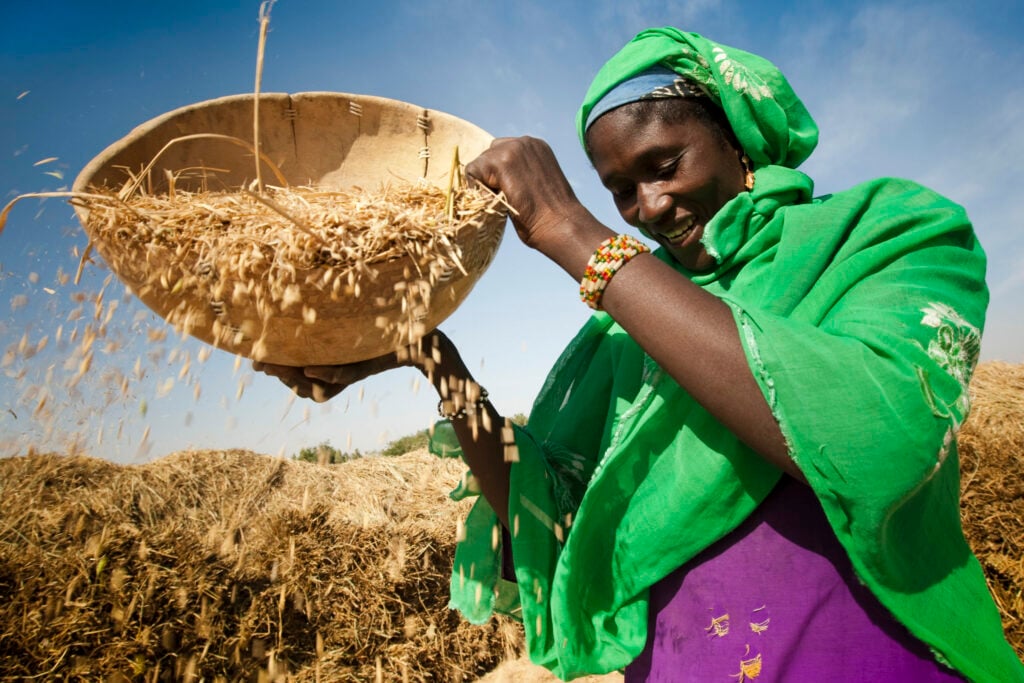Environmental, agricultural and political professionals from all over the world will gather in New York on September 23 for the UN Food Systems Summit. What does this summit entail, what will happen and what role does Cordaid play? We have asked our five most poignant questions to Bram Peters, Cordaid’s food security expert.

What is the Food Systems Summit?
“The United Nations organises this meeting to achieve a more sustainable and inclusive food system worldwide. Governments, companies, NGOs, environmental organizations, human rights organisations: they come together to tackle the biggest problems concerning food processing, like its impact on climate change. But they also discuss how everyone in the world could get access to healthy and nutritious food. This year, the summit will focus on changing the food system, because it is clear that something needs to change on a large scale.”
We used to talk about food security, now everyone is talking about food systems. What has changed?
“We have to go back in time to explain this. In the 1980s and 1990s, discussions about food mainly focused on its availability: does a country produce enough food to feed all its citizens? From the 2000s, discussions started to focus increasingly on food security: everyone should have access to affordable, sufficient and nutritious food. There might be enough food, but can people also access it? And does it contain the necessary healthy nutrients such as vitamins and proteins?
“Today we realise that we can only improve by tackling the whole food system.”
Food security is obviously still important, but today we realise that we can only improve this by tackling the whole food system. Think, for example, of the journey of a chocolate bar before it ends up in the supermarket. Cocoa is produced, then transported, processed and packaged. The entire value chain is not only about food, but also has an impact on climate change, working conditions and trade relations. The food sector does not stand alone but is embedded in society and policy. Food production has increased significantly at the expense of the climate. Only by improving the food systems, progress can be made on all Sustainable Development Goals.”
There is also quite some criticism on the Food Systems Summit. What is that about?
“The UN says anyone can join the summit. However, the criticism, coming from small indigenous and farmers organisations, is that the summit keeps the existing power structures in place. For example, a multinational has the means to prepare for the summit with a large team for a whole year. A small farmer from Bangladesh can’t. The UN claims to be inclusive, but at the same time little is done about these existing power structures. As a result, large stakeholders, such as banks and multinationals, have more influence than small stakeholders, such as farmers and indigenous tribes. And it is precisely these major stakeholders who are often to blame for environmental pollution or expropriation of land.
“The summit will happen, but the image of an inclusive summit is no longer standing.”
Many of the smaller organisations, therefore, want to withdraw from the summit. Some have already done so. The summit will happen, but the image of an inclusive summit is no longer standing. Governments are also criticised for taking too little responsibility to chart their own course. Governments should make sure that human rights and climate issues are at the core of the discussions, instead of influential companies and their profits.”
What does Cordaid think of the Food Systems Summit?
“The Civil Society and Indigenous Peoples’ Mechanism, organises the counter-movement and they have published a letter signed by Cordaid. The letter states that the summit must be equal and that everyone must have a say.
At the same time, Cordaid will still participate, because we also strongly believe that organisations like ours are able to give local communities a voice. In discussions with governments and companies, we raise human rights. And with companies that are open to corporate social responsibility, we look at how they can achieve a more sustainable and fair value chain.”
What does Cordaid do to improve food systems?
“In its programmes, Cordaid applies a food system approach. This means that we take various aspects into account when developing programmes, such as climate-smart agriculture, the position of women and human rights in value chains.”
